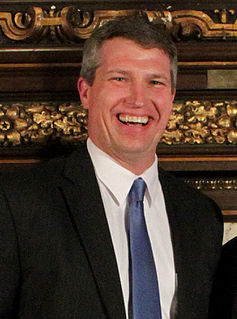A Quote by Iain Banks
It looks perverted and wasteful to us, but then one thing that empires are not about is the efficient use of resources and the spread of happiness; both are typically accomplished despite the economic short-circuiting - corruption and favoritism, mostly- endemic to the system.
Related Quotes
The goal of socialism is a fairer allocation of economic resources, which its advocates often claim will also be a less wasteful one. Socialism is about who gets the goods and how. Socialism objects to markets because markets allocate resources in ways socialists believe to be unfair on both counts: both the who and the how.
The way in which we can promote peace, is by promoting sustainable management of our resources, equitable distribution of these resources, and that the only way you can actually do that, is that then you have to have a political, economic system that facilitates that. And then you get into the issues of human rights, justice, economic justice, social justice, and good governance or democratic governance. That's how it ties up.
The Obama administration's agenda of maximizing dependency involves political favoritism cloaked in the raiment of "economic planning" and "social justice" that somehow produce results superior to what markets produce when freedom allows merit to manifest itself, and incompetence to fail. The administration's central activity - the political allocation of wealth and opportunity - is not merely susceptible to corruption, it is corruption.
Corporate governance is concerned with holding the balance between economic and social goals and between individual and communal goals. The governance framework is there to encourage the efficient use of resources and equally to require accountability for the stewardship of those resources. The aim is to align as nearly as possible the interests of individuals, corporations and society.
From the time I first understood economic principles, I was always concerned also that any system be operated on an efficient basis, which meant decentralization because knowledge is not concentrated anywhere. It's based on motivation, and so these are the advantages of, say, the cautious case for capitalism, that the market system is efficient.
How is it that we have created an economic system that tells us it is cheaper to destroy the earth and exhaust its people than to nurture them both? Is it rational to have an pricing system which discounts the future and sells off the past? How did we create an economic system that confused capital liquidation with income?
Since scarcity is the basic economic problem, if it does not exist then there is no reason for my economics course. Devoting time to the study of how people use limited resources to fulfill unlimited wants and needs should help us to discover how to best utilize the resources we have at our disposal.
I am big supporter of the idea of a global anti-corruption movement - but one that begins by recognizing that the architecture of corruption is different in different countries. The corruption we suffer is not the same as the corruption that debilitates Africa. But it is both corruption, and both need to be eliminated if the faith in democracy is not going to be destroyed.
The problem of giving health care to everybody cannot be solved so long as we're spending huge sums of money for war. Already we have a very wasteful healthcare system, the most wasteful healthcare system in the world. I mean, we spend the most money and still have 40 million people without insurance. Compare us to Cuba. Cuba is our enemy, run by a dictator, Fidel Castro. But people in Cuba get health care at least equal to that of the United States - with very scarce resources. So I think this issue is the most important domestic issue.
Empires are synonymous with centralized if occasionally schismatized hierarchical power structures in which influence is restricted to an economically privileged class retaining its advantages through usually a judicious use of oppression and skilled manipulation of both the society's information dissemination systems and its lesser as a rule nominally independent power systems. In short, it's all about dominance.





































